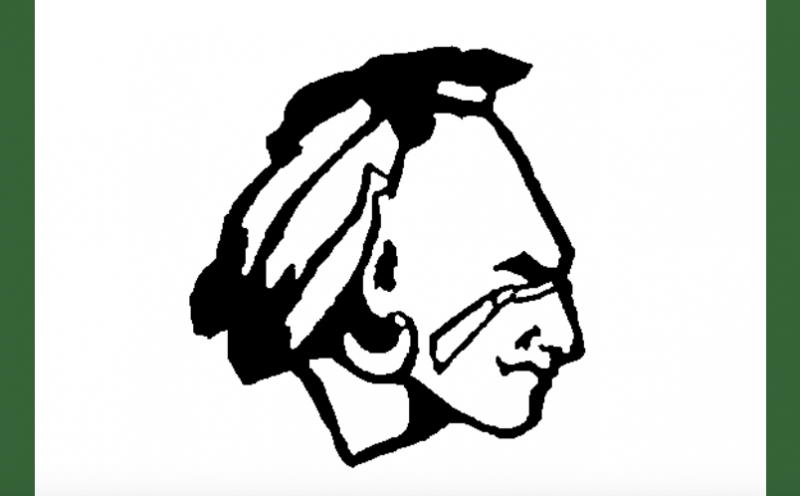Tribe members support logo, criticize subcommittee
The Dartmouth Indian mascot should be maintained, three members of the Wampanoag tribe, including the man who designed the current logo, wrote in two separate letters this week.
The letters, which were sent to the Equality and Diversity Subcommittee, also criticized the subcommittee for a lack of public input on the topic.
The Wampanoag Tribe of Gay Head Aquinnah wants the town to “keep [the] name and logo,’’ former Dartmouth resident Cheryl Andrews-Maltais, the chair of the tribe, wrote in an email to Dartmouth Week.
She described the Wampanoag Tribe of Gay Head Aquinnah as one of only three historic and formally recognized tribes in Massachusetts.
She wrote one of two letters sent to the Equality and Diversity Subcommittee this week in support of the logo.
She said her tribal government had not been sought out for input on the issue, despite requests that they “must be engaged in any discussion regarding the name and the imagery of the town’s ‘Dartmouth Indians’ reference.’’
Before any decision is made, she wrote, “there is an obligation of the town and the school board to engage in a meaningful discussion and consultation’’ with the tribal government.
“We have expressed a willingness to work with the town and the commonwealth to ensure that we, as the Indigenous Wampanoag People, are represented in a respectful and dignified manner, to promote and inspire the excellence the athletic teams wish to achieve, to elevate the importance and awareness of Wampanoag history and our contemporary presence,’’ she wrote.
A second letter was signed by three people, including Clyde Andrews, a 1974 Dartmouth High graduate and member of the Wampanoag Tribe of Gay Head Aquinnah who designed an iteration of the current Dartmouth Indian logo.
The letter was also written by Christopher Pereira, chair of the Veterans Advisory Board, former School Committee member and 1998 Dartmouth High graduate, and Jacob Ventura, a lawyer, 2005 graduate of Dartmouth High and member of the Wampanoag Tribe of Gay Head Aquinnah.
“Rather than cancel our indigeneous history and imagery, we implore the subcommittee to work with us to enhance and honor our history and continue to ensure that the Town of Dartmouth remains an inclusive and respectful community for all,” including those with opposing positions, the letter read.
The three signers expressed disappointment that the subcommittee “failed to provide an opportunity for public comment.’’
At the subcommittee’s June 22 meeting, two speakers spoke out against the mascot. Kempton Campbell, a 2019 Dartmouth High graduate who authored an independent study on mascots, called for the Indian to be retired, saying it reduces the identity of indigenous people “to a caricature.’’
Dr. Laurel Davis-Delano, a sociologist who has studied Indian mascots for more than 25 years, cited studies that found that introducing indigenous youth to mascots has a negative impact.
Davis-Delano discouraged the committee from seeking public opinion on the issue in part because this “implies that non-native people should be making decisions about representations that are not them.”
Andrews, Pereira and Ventura took exception to her comments.
“The people of Dartmouth are well-educated, respectful, open-minded and are more than capable of exercising their First Amendment rights to free speech in an open and public venue,’’ their letter read.
The complete text of the letters are attached to this story












